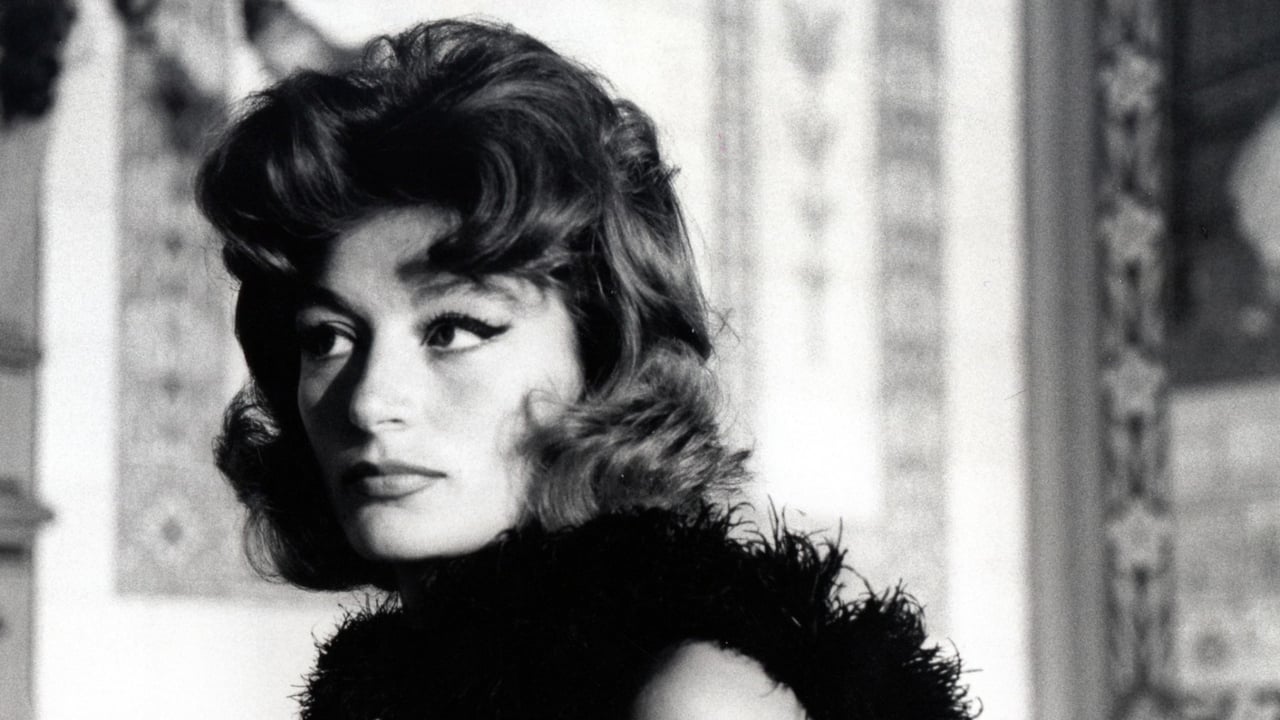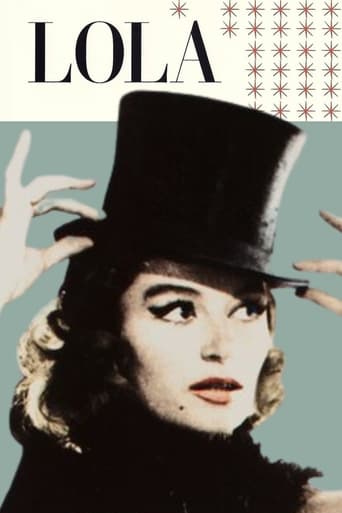Matcollis
This Movie Can Only Be Described With One Word.
Comwayon
A Disappointing Continuation
SanEat
A film with more than the usual spoiler issues. Talking about it in any detail feels akin to handing you a gift-wrapped present and saying, "I hope you like it -- It's a thriller about a diabolical secret experiment."
ActuallyGlimmer
The best films of this genre always show a path and provide a takeaway for being a better person.
chaos-rampant
Truly this is one of the Nouvelle Vague debuts to be cherished, not so much for new ground it breaks because the way had been paved for adventurous makers who wanted out from the constraints of stage a few years prior, but because it paces freely and briskly.How to shape the comingling of life that plays a cosmic joke on us and our effort to pursue meaning must have been the question in Demy's mind, with whom I'm happy to be acquainted here for the first time, the door to his home opened by my recent discovery of his wife, Varda. Different characters stroll around Nantes in search of lost time and love that can be new again. The man chances to meet one day in the street a flame of his childhood, the girl Lola in turn has taken in her bed an American sailor that reminds her of hers. This is memory, consciousness that looks back on itself and forward to itself (it's the same facet of ourselves that creates memory and anticipation). Demy creates it so that he can wonder about the possibility of an anchor, happiness, in a life that heaves this way and that with turbulent streams of consciousness that carry the past and flow out to future sea. The man is free from constraints as the film begins, hopping around town, but the freedom only makes him languish. We need life that points to something outside of us yet the joke played on us by life is that we keep encountering ourselves ahead of ourselves, the life we've set in motion.True to the returning nature of consciousness, characters relive feelings of old and contemplate love that can sustain a future life while the present is pulling them away in other directions, a smuggling trip to South Africa, a return voyage to America, a girl absconding to Cherbourg in search of life. In a masterful stroke we relive Lola's first love through a surrogate infatuated girl who walks around a funpark with the sailor lookalike, a scene that recalls the sage Epstein. This is the lushest of different strolls and it is only the lack of poetics of transcendence that I miss here, Demy being content with transparent observation and dialogue. Resnais had triumphed in this two years prior in Hiroshima mon amour and through the years we arrive at the wholly fluid unmooring of space in Malick which harks all the way back to Epstein.Demy made a second film that I've already set my eyes on, that picks up in Cherbourg after events of this continuing the return, the protagonist here returns as a character there, there's a flashback and a dinner scene that repeats. I pick up the thread there.Here, none of it truly materializes love except perhaps the dreamlike return of the son in his rich convertible who drives around town for the duration, reluctant to return. But we have past and future materializing together in the walk that gives a clear-eyed perception of ourselves at the crossroads.
Bubba JIojo
My all-time favourite. Must have watched it a hundred times, sometimes 4 times in a week, and I never can get tired of it. It's just cinematographic perfection. And I don't have words for Anouk Aimee as Lola. Magic ?
dbdumonteil
...You would know that,in Chicago,there are no sailors but gangsters.That's what the mother tells her daughter who became friend with an American!This is one of the funniest lines of a wonderful movie.There's a tight connection between "Lola" and Demy's following movie "les parapluies de Cherbourg":-Lola is an unmarried mother,Genevieve becomes one too. Both are waiting for a lover,in a harbor .(Nantes for Lola,Cherbourg for Genevieve)-Marc Michel's character,Roland appears in both movies!In love with Lola,he is rejected.In "les parapluies",his memories come back for a very short while: a flashback displays pictures of Nantes,where Lola's story took place .And he told Genevieve's mother about his long lost love.-In "Lola" ,Roland wants to marry the heroine and to become her(not his) son's father.In "les parapluies",he marries Genevieve and becomes her (not his) son's father.-Both movies display ordinary people,whose ordinary life is shown with emphasis but not without taste ,as if all this were written in verse.What's the matter if "Lola" is a "normal" movie and "les parapluies " an entirely sung one.Demy's touch makes both winners.-Both movies -and it was to continue with "les demoiselles de Rochefort" and the marvelous "Donkey Skin"- favor the scenery:the black and white shots in "Lola" are at least as unreal and as dreamlike as the vivid colors in "les parapluies"(influenced by American musicals of the fifties)-Both movies feature families without a father figure:the mother and the daughter I mention above ,we find them back in "les parapluies.." and even later in "les demoiselles de Rochefort".But in this latter work,it's the mother who's an unmarried mother."Les parapluies de Cherbourg" is praised and loved everywhere,but "Lola"'s still crying to be seen.Like Roland ,Lola will come back in another Demy's movie ,made in America: "Model Shop"(1968).Leonard Maltin says that "Demy's eye for LA is striking ,but overall feel to story is ambiguous".It's not on a par with Lola,though.
vanderbilt651
This film, which sets up many of the story lines and themes that are taken up in "The Umbrellas of Cherbourg," is as charming and seductive as the latter, even in black and white and without the musical numbers. In fact, the black and white is quite spectacular--the camera loves Anouk Aimée in particular--and the film seems as if it is going to turn into a musical at almost every moment. While watching the film, one thrills to see the first statement of director Demy's beautiful and poignant cinematic universe. "Lola" is at once a splendid homage to the classic Hollywood film, and at the same time, through its expression of complex, mostly tragic themes, and quotidian--if not ugly--realities, something much more intriguing than a conventional film romance. Yet, such harshness is tempered, even transformed, by the dreamscape of cinema, both in what is depicted on-screen as well as through the characters' own processes of dreaming. You needn't resist the temptation to call it sublime.

